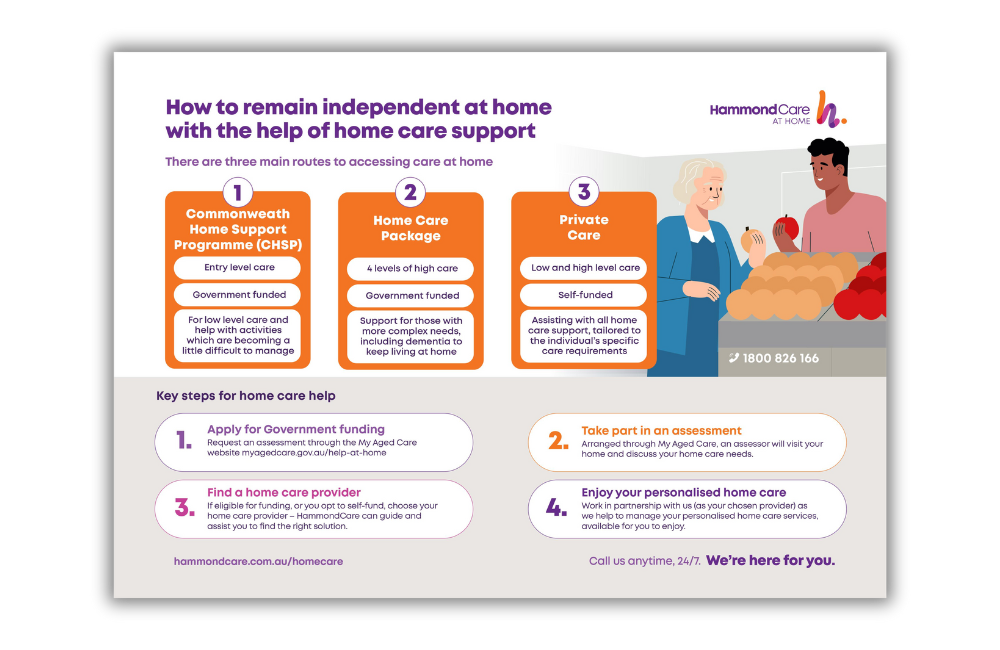Navigating NDIS plans through the lens of home care providers
Navigating NDIS plans through the lens of home care providers
Blog Article
All Concerning Home Treatment Solutions for People With Disabilities: NDIS Registered Assistance
Home treatment solutions under the NDIS play a crucial function in supporting people with handicaps. These services are designed to improve daily living with tailored aid, ranging from individual treatment to movement assistance. Comprehending just how to navigate these alternatives can be complex. This review discovers the different facets of NDIS home care, from offered solutions to the selection of companies, highlighting essential considerations for those looking for assistance. The trip toward empowered care begins right here.
Understanding the NDIS and Its Purpose
The National Handicap Insurance Plan (NDIS) functions as a transformative framework made to provide assistance and solutions for people with specials needs. Developed to boost the lifestyle and warranty fair accessibility to necessary resources, the NDIS equips individuals by supplying personalized plans tailored to their special demands. It intends to cultivate freedom, enabling individuals to seek their individual objectives and aspirations.Through an organized strategy, the NDIS allocates financing for various supports, consisting of education and learning, work assistance, and area involvement. This all-inclusive system not just concentrates on prompt treatment yet additionally highlights long-lasting developmental end results. By advertising selection and control, the NDIS motivates individuals to pick their favored company, ensuring that care aligns with their preferences and values. Ultimately, the NDIS stands for a significant dedication to improving the lives of individuals with disabilities, cultivating inclusivity, and developing a much more supportive culture.
Kinds Of Home Treatment Solutions Available
Various kinds of home care solutions cater to people with disabilities, mostly concentrating on personal care support and respite care alternatives. Individual care assistance gives necessary support with everyday activities, while break care supplies momentary relief for key caregivers. Understanding these solutions is important for ensuring the wellness of both individuals with handicaps and their households.
Personal Treatment Assistance
While steering everyday life can offer challenges for people with specials needs, personal care support uses necessary support customized to their distinct needs. This type of home treatment solution includes a series of activities designed to advertise independence and boost lifestyle. Personal treatment assistants aid with daily jobs such as showering, dressing, grooming, and toileting, ensuring people maintain personal hygiene and convenience. They might also assist with dish preparation, medication administration, and movement support. By supplying individualized care, these experts encourage people to engage more fully in their social tasks and day-to-day routines. In general, personal care aid plays a considerable function in cultivating dignity and autonomy for those with specials needs, enabling them to thrive in their home environment.

Reprieve Care Options
Respite care offers as an important resource for families and caretakers of people with disabilities, providing momentary alleviation from the demands of daily caregiving. This sort of service can take numerous forms, including at home break care, where qualified professionals check out the home to aid with care tasks. Alternatively, family members might opt for facility-based break care, where people obtain care in a customized environment, permitting caregivers to pause. In addition, some companies use emergency break services for unpredicted scenarios. These options not just help alleviate caregiver anxiety however additionally promote the health of individuals with specials needs by offering them brand-new experiences and social communication. In general, break care plays an important duty in supporting both caregivers and those they look after.

Just How to Accessibility NDIS Home Treatment Solutions
Accessing NDIS home treatment solutions includes understanding the qualification requirements established forth by the National Handicap Insurance System. Individuals should navigate a structured application process to secure the required assistance customized to their demands. This area will clarify both the qualification needs and the steps associated with using for services.
Qualification Standards Clarified
To qualify for NDIS home care solutions, people need to meet specific qualification requirements that assess their scenarios and needs. Applicants have to be aged in between 7 and 65 years and have a long-term and considerable disability that influences their ability to do daily tasks. Additionally, they need to be an Australian resident, a permanent citizen, or hold a Protected Unique Category Visa. The NDIS requires proof of the disability, typically through clinical analyses or reports. Individuals must show that they need assistance to participate in social and economic life. These criteria assure that solutions are guided towards those that genuinely require aid, advertising self-reliance and improved lifestyle for individuals with handicaps.
Application Refine Steps
Can I Choose My Very Own Assistance Employees Via NDIS?
The private made inquiries whether they might select their very own assistance employees under the NDIS structure. Normally, individuals have the flexibility to choose support workers, promoting customized treatment that straightens with their details demands and choices.
What Takes place if My Requirements Modification After Receiving Support?
If a person's needs change after obtaining assistance, they should communicate these modifications to their company. Changes can be made to the treatment strategy, ensuring that the assistance stays relevant and efficient for their situations.

Exist Restricts on The Amount Of Hours of Treatment I Can Get?
The specific asked about prospective limitations on the number of treatment hours obtained. Typically, such restrictions may exist based upon particular policies or funding arrangements, stressing the index importance of reviewing arrangements and guidelines consistently.
Can I Make Use Of NDIS Financing for Home Adjustments?
The inquiry of utilizing financing for home adjustments arises regularly. Usually, individuals may utilize NDIS financing for needed alterations to their homes, making certain accessibility and safety and security, contingent upon conference details qualification criteria and guidelines.
Exactly how Do I Manage Issues Regarding My Home Treatment Providers?
To resolve complaints about home care solutions, people need to first record their concerns. They can interact directly with their service supplier, seeking resolution, or intensify the issue to relevant oversight bodies if needed. Home care services under the NDIS play an essential function in sustaining individuals with specials needs. Numerous types of home care services cater to people with specials needs, mostly focusing on personal care help and reprieve treatment alternatives. support at home. Individual care assistance provides vital assistance with daily tasks, while respite treatment offers short-lived alleviation for key caregivers. Households might choose for facility-based respite care, where individuals obtain treatment in a specialized environment, allowing caretakers to take a break. Exactly how can family members successfully manage the financial elements of home care solutions for individuals with disabilities?
Report this page